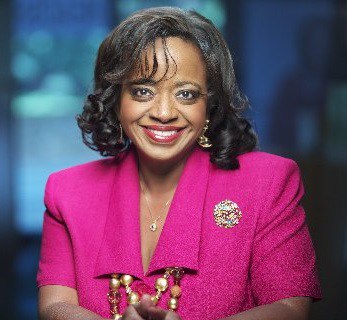As the Civil War raged in 1864, Rebecca Lee marked her place in history when she became the first Black female to graduate medical school in the United States. She received an M.D. degree from the New England Female Medical College (now Boston University School of Medicine). This month my alma mater BUSM will celebrate the life of this pioneering Black woman physician as the exhibit established in her honor is unveiled.
Raised by an aunt who provided care to the sick, an imprint was made. At 21, young Rebecca moved to Massachusetts and worked for eight years as a nurse.
Physicians noted her dedication, skills and intellect. Replete with their letters of recommendation, in 1860 Rebecca Lee applied, and was admitted, to the New England Female Medical College.
“I early conceived a liking for, and sought every opportunity to be in, a position to relieve the suffering of others.” – Rebecca Lee Crumpler, MD (1831-1895)
Dr. Lee graduated medical school, married Arthur Crumpler and worked for the Freedmen’s Bureau in Richmond, Virginia. The Bureau was established by Congress in 1865 to help repair Civil War-torn communities. Among other services, it provided food, built housing and provided physician services. Dr. Crumpler provided medical care to thousands of recently-freed slaves who were routinely denied medical care by White physicians.
Dr. Crumpler endured very harsh conditions, disparaging comments and intense discrimination by most fellow physicians. Some administrators would not readily grant her hospital privileges, and many pharmacists would not honor her prescriptions. Some people wisecracked that “the M.D. behind her name stood for nothing more than ‘Mule Driver.'”
The couple returned to Boston and she opened her practice at 67 Joy Street on Beacon Hill. The location yet bears an historical plaque in her honor.
In 1883, Dr. Crumpler blazed another trail: She became the first Black physician to write a medical textbook, and the only female physician-author in the 19th century. Titled, A Book of Medical Discourses in Two Parts, the book is a reference on women and children’s health.
Today, Blacks currently comprise 13 percent of the US population. According to the Association of American Medical Colleges’ Diversity in Physician Workforce Facts and Figures, 2014 report, with over 834,000 physicians in the United States, only 4 percent are Black, and most of them emerge from historically Black medical schools, led by Howard University and Meharry Medical College.
Given that ethnic health care disparities abound; and it is mostly Black and other minority physicians who provide care to underserved, underprivileged patient populations, the dearth of Black physicians is palpable and problematic.
It is not that today’s Black youth lack the intellect to become medical professionals; but there must be a seismic shift of focus from what I call “being busy with a whole lot of nothing”—social media, sports, hip hop; and yes, crime—to an emphasis on science, technology, electronics and math. Visible role models are important.
As a Black female who grew up as a poor, latch key kid in a single parent home, the odds were against me. But I had another “first” Black woman: my then-pediatrician, Dr. Doris Wethers. I also had a self-determination to rise above formidable circumstances. It is possible to overcome, and to blaze new trails: In 1985 I became the first Black female to establish an obstetrics and gynecology practice in Dekalb County (and only the third to do so in metro Atlanta).
Dr. Crumpler’s courage and legacy continue to inspire. Black women physicians have been US Surgeons General, clinicians, researchers and academicians. In 2012, 880 Black women graduated American medical schools, compared to only 517 Black males, who also lag behind Hispanic male physicians (766 graduates in 2012).
“Dr. Crumpler broke so many barriers. She needs to be honored as the American original she was,” states Dr. Douglas Hughes, BUSM’s associate dean of academic affairs.
Melody T. McCloud, M.D., ob-gyn and author, is the founder and medical director of Atlanta Women’s Health Care. She is an alumnus of Boston University and Boston University School of Medicine. McCloud is affiliated with Emory University Hospital Midtown. On Twitter and Doximity.



 Janine Anthes
Janine Anthes